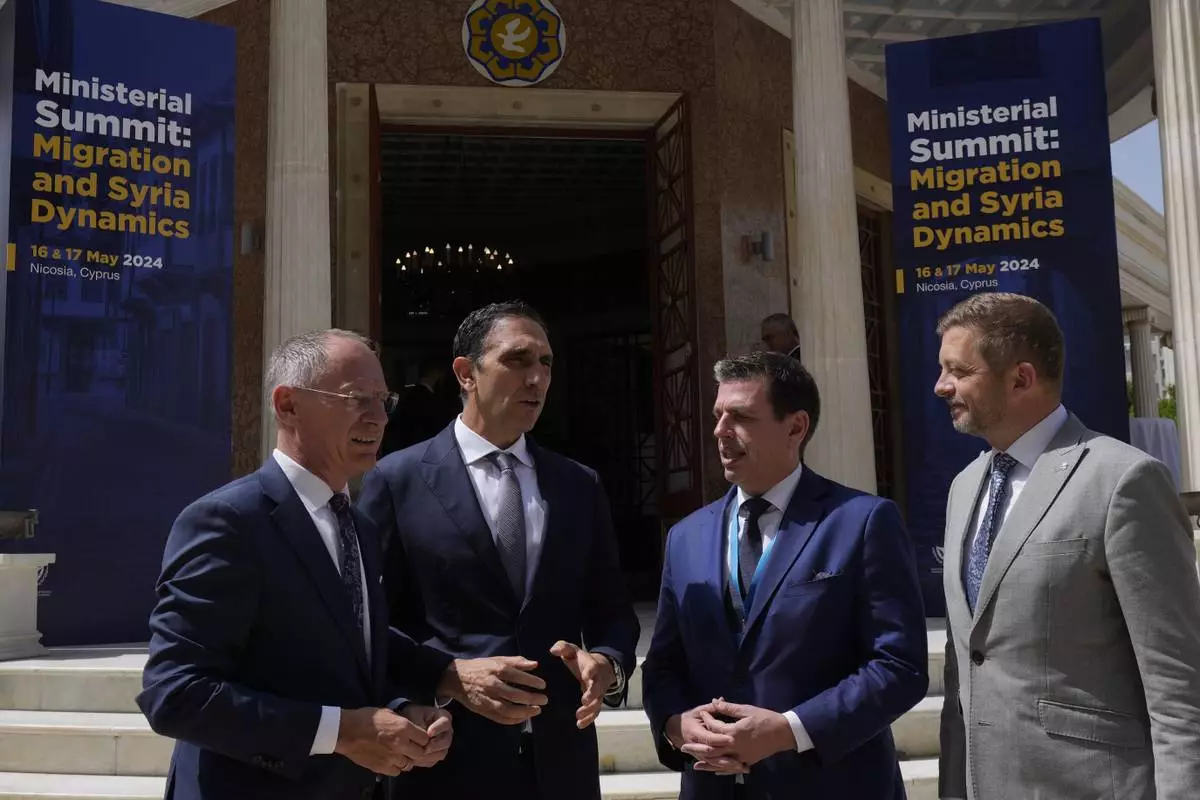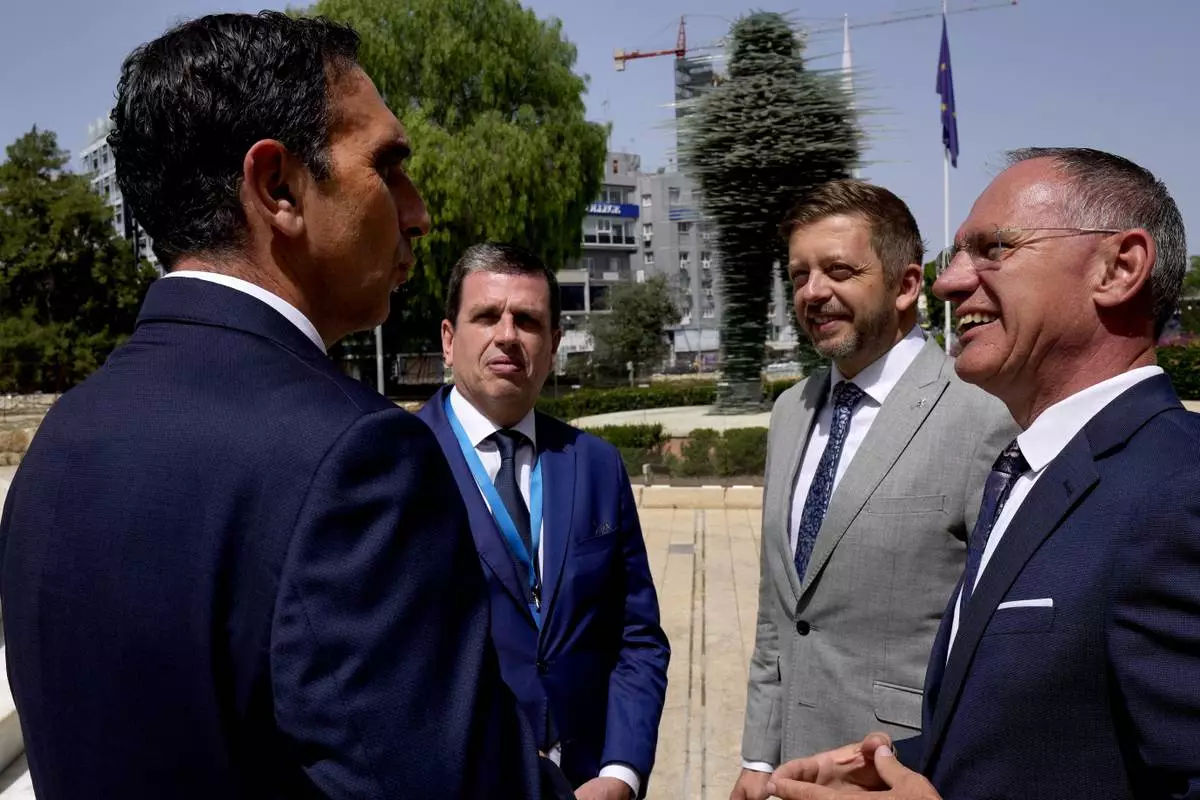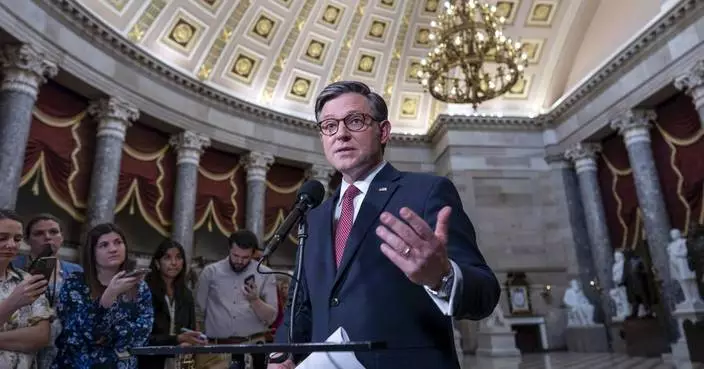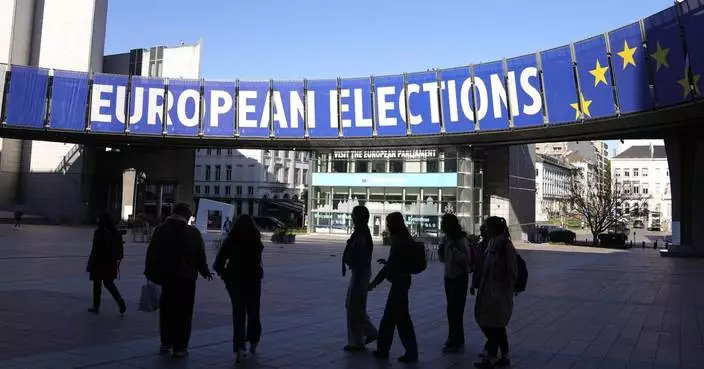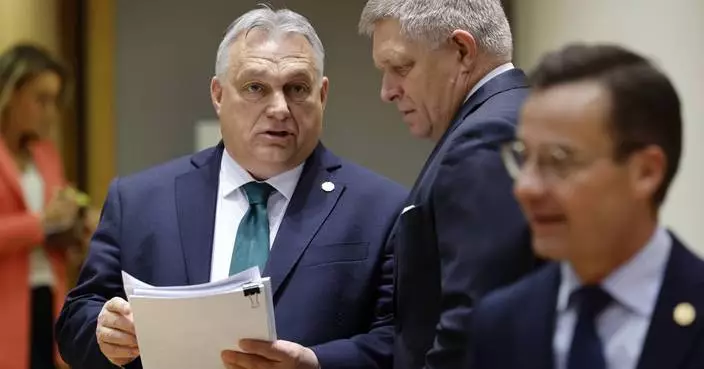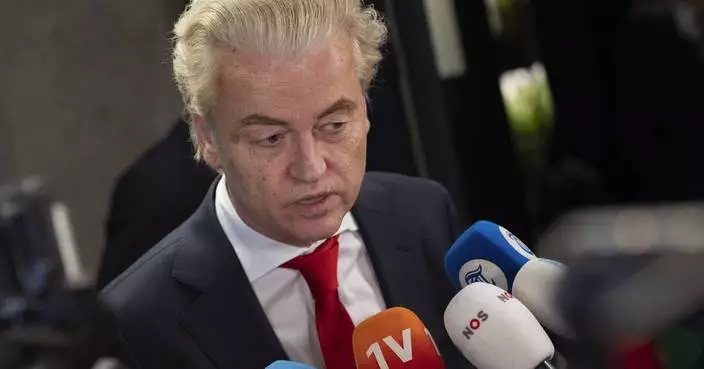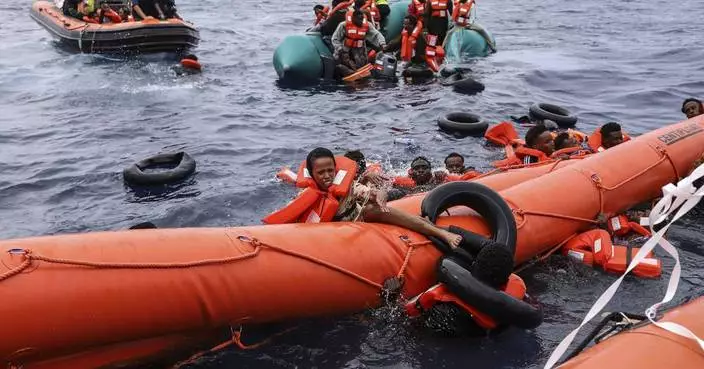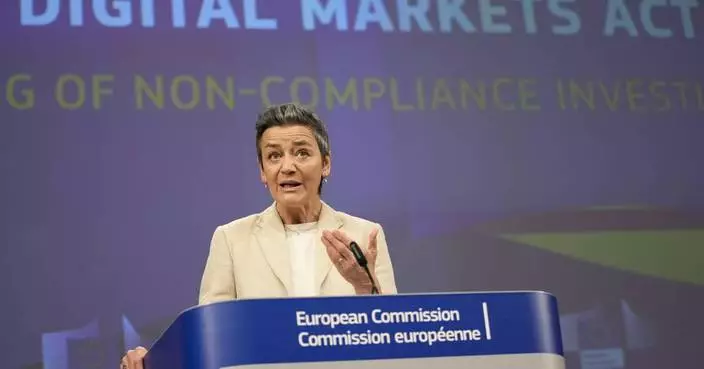The contest to be Britain's next prime minister shrank to five candidates on Tuesday, with Boris Johnson bolstering his substantial lead in the second round of voting by Conservative Party legislators.
The ultimate victor will replace Prime Minister Theresa May, who resigned as party leader this month after failing to persuade Parliament to back her plan for leaving the European Union.
Here's who is still in the running:
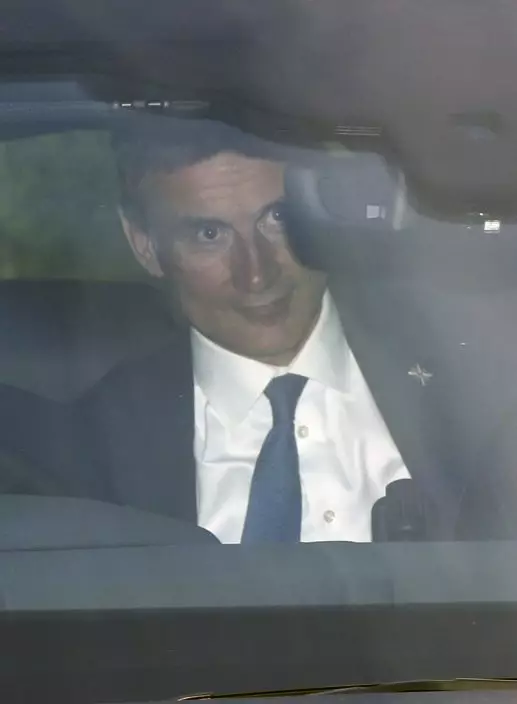
Conservative party leadership contender Jeremy Hunt arrives at the television studios ahead of a scheduled live television debate for the Conservative Party leadership candidates, in London, Sunday June 16, 2019. Five out of the six candidates will appear in the first TV debate, with Boris Johnson declining to take part, although other candidates accuse him of trying to avoid scrutiny. (Yui MokPA via AP)
— BORIS JOHNSON, 54:
The former London mayor and British foreign secretary is finally within touching distance of his long-cherished ambition to be U.K. prime minister. He got 126 of the 313 votes and looks almost certain to be one of the two finalists who will go to a ballot of all 160,000 Conservative Party members nationwide.
Johnson's jokes and Latin quips have made him one of the Conservative Party's most popular politicians. But verbal blunders, glibly offensive comments and untrue statements also have led some to question his fitness for high office.
Johnson's team is keeping him on a tight leash, rationing his public appearances in an attempt to avoid any gaffes that could derail his campaign.
A leading figure in the 2016 campaign to leave the European Union, Johnson takes a tough line on Brexit. He has vowed that Britain will withdraw from the EU on Oct. 31, with or without a withdrawal agreement that some economists warn is needed to prevent chaos. He also threatened to withhold a 39 billion pound ($50 billion) divorce payment if the EU plays hardball.
That has won him the backing of hard-line Conservative Brexiteers. But he is also, and somewhat paradoxically, supported by many Tory moderates who claim he has the skills to unite the party and win back voters from rival parties on both left and right.
— JEREMY HUNT, 52:
Hunt, who came second on Tuesday with 46 votes, has held a variety of Cabinet posts and served as foreign secretary since Johnson resigned in July over Brexit. Regarded as well-versed in making Britain's bureaucracy work, he managed to navigate a heated contract dispute with doctors in the National Health Service as health secretary.
Hunt has a reputation for being calm under pressure and a good communicator, but some doubt he is flashy enough to excite the electorate.
Hunt backed the losing "remain" side during the 2016 EU membership referendum that yielded Brexit, but now says he would negotiate a better withdrawal deal with the EU and lead the U.K. out of the bloc.
— MICHAEL GOVE, 51:
Like Johnson, Gove helped lead the campaign to leave the European Union, but scuttled his friend Johnson's bid to become prime minister in 2016 when he unexpectedly withdrew his support and decided to run for the job himself. The move left him with a lingering taint of treachery in the eyes of some Conservatives.
Gove has held several posts in May's government — he's currently environment secretary — and backed her Brexit policies even as former colleagues denounced May's Brexit withdrawal deal with the EU. That hurts him among hardcore Brexiteers, who believe he went soft by supporting May's deal.
Gove is also facing pressure after acknowledging that he used cocaine more than once before entering politics.
— RORY STEWART, 46:
The campaign's big surprise, International Development Secretary Rory Stewart is the self-styled "anti-Boris" candidate. He has unsettled rivals by accusing Johnson and his other opponents of peddling "fairy tales" about getting a better Brexit deal than that offered by May.
Stewart has pushed for compromise and warned against leaving the EU without a deal — a position that has won him the support of those whose leanings were to remain.
Stewart has been traveling the country talking to British voters and producing endearingly amateurish social media videos. He has the most eye-catching background of any candidate: a onetime tutor to Princes William and Harry, Stewart once walked across Afghanistan and was a deputy provincial governor in Iraq after the 2003 U.S.-led invasion.
Stewart has also faced questions about whether he has worked as a British spy. He denies it — but notes that former spies are barred by law from disclosing their past in espionage.
— SAJID JAVID, 48:
Javid's background as the son of Pakistani immigrants sets him apart from many other Conservative contenders. A former banker who was elected to Parliament in 2010, he is a champion of the free-market, libertarian wing of the party.
During the 2016 referendum, Javid was on the "remain" side but has since embraced Brexit. However, some Brexiteers remain suspicious of his allegiances. He says he would make getting a new deal with the EU his "absolute priority" and does not favor walking away without a divorce agreement, though would do so as a last resort.
As British home secretary, responsible for immigration and borders, he raised his profile by taking aggressive action to curtail the arrival of small boats carrying migrants across the English Channel.
He has also displayed an ability to make fun of himself and his lack of glitz, contrasting his relatively humble roots to the elite backgrounds of Johnson and other rivals.
"I don't have the oratory of Cicero," he said. "It's less Homer's Iliad and more Homer Simpson."
Follow AP's full coverage of Brexit and the Conservative Party leadership race at: https://www.apnews.com/Brexit





